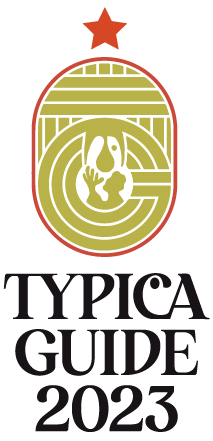

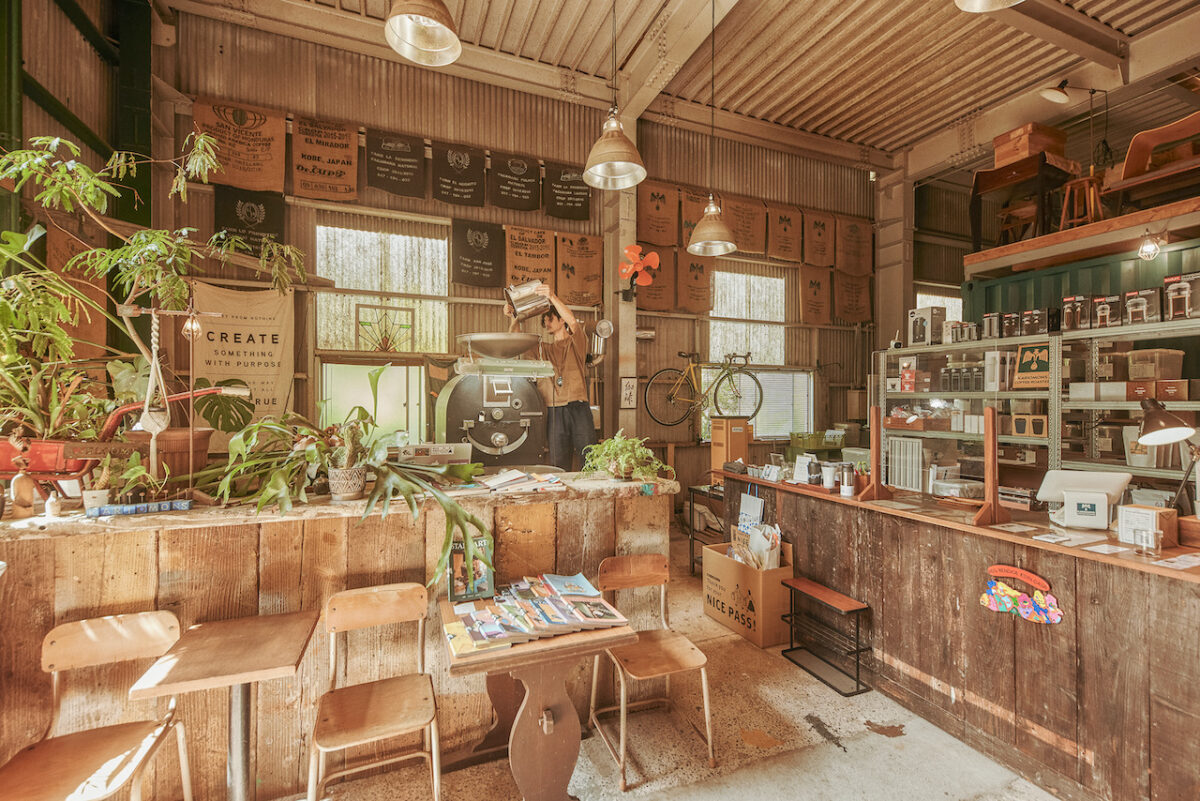
With the motto, “More than just a cup of coffee,” KARIOMONS COFFEE ROASTER is mainly engaged in direct trade with around 10 coffee producers. In 2009, they started out as a food truck and now have two stores in Nagasaki Prefecture that breathe new life into the spaces that were already there. This is the story of the founder, Hiroyuki Ito, who looks at life through his passion for coffee. *We will be referring to him as Ito from here on.
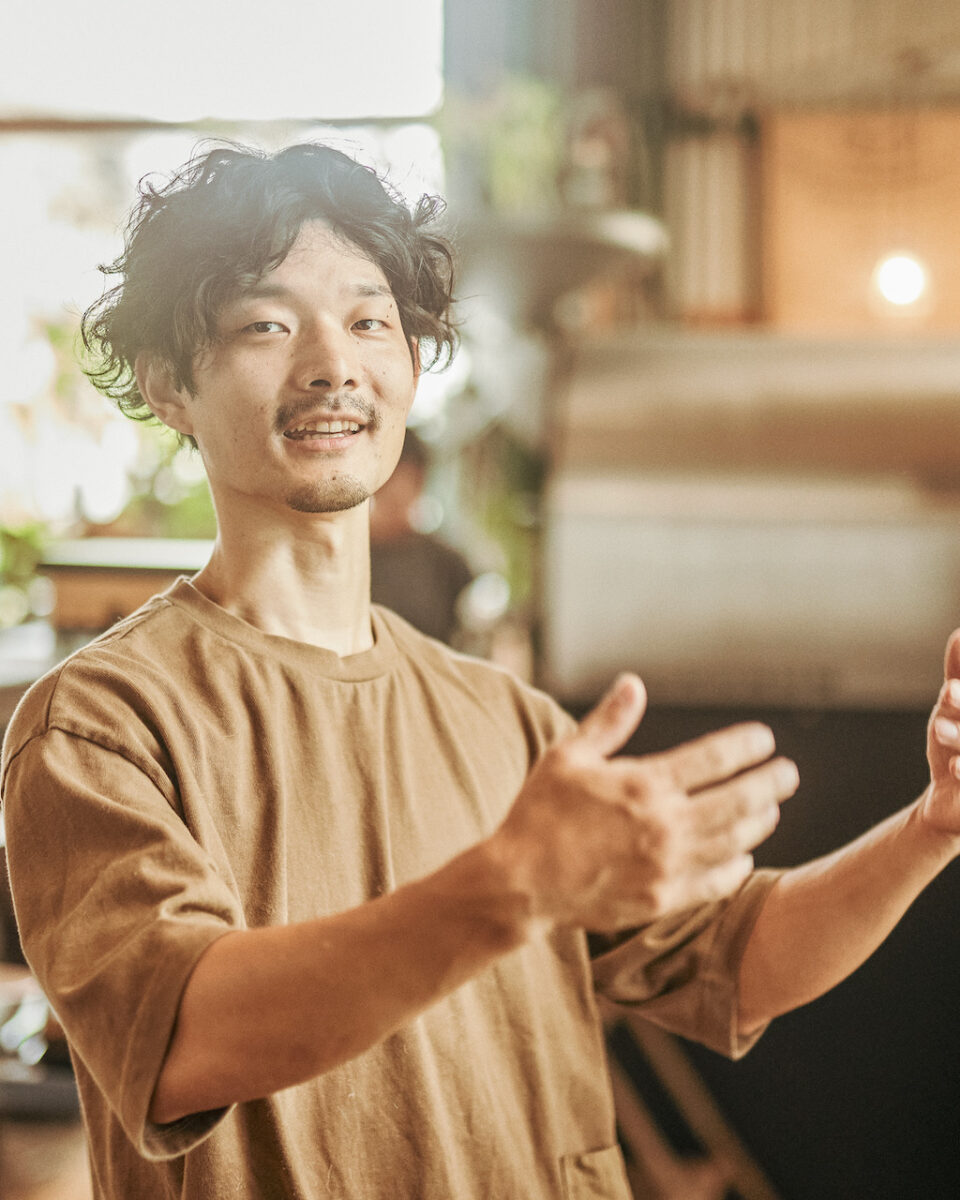
A brand new existence unlike anything seen before
Names of stores and companies hold the sentiments, personalities, values, and philosophies of its founders, and this is not something limited to just coffee shops and cafes. KARIOMONS COFFEE ROASTER, which was established in 2009, is no exception, and the originality of the founder, Ito, is clearly represented in it.
Kariomon is an Ethiopian word that means “coffee ceremony.” It is a cultural and traditional custom that is seen as a sort of event or a ritual even to this day, however, it was originally used to describe a moment in time connected to everyday life, as well as a time and space for hunters to have tea after returning from a hunt.
“What attracts me is the gentle and inexpressible nature of the word “kariomon.” The word has a deep history, but the fact that I can’t find a precise way to describe it excites me because it’s like I’m stepping into a world of the unknown. That’s why I have a lot of trouble when people ask me what the name of our store means,” Ito laughed.
“I added the ‘s’ at the end of ‘Kariomon’ because it had a nice ring to it, and because at the time when you looked up ‘Kariomons’ on the internet nothing came up. I was so excited to think that the name of my store was a brand new word that had never been seen or heard of before.”
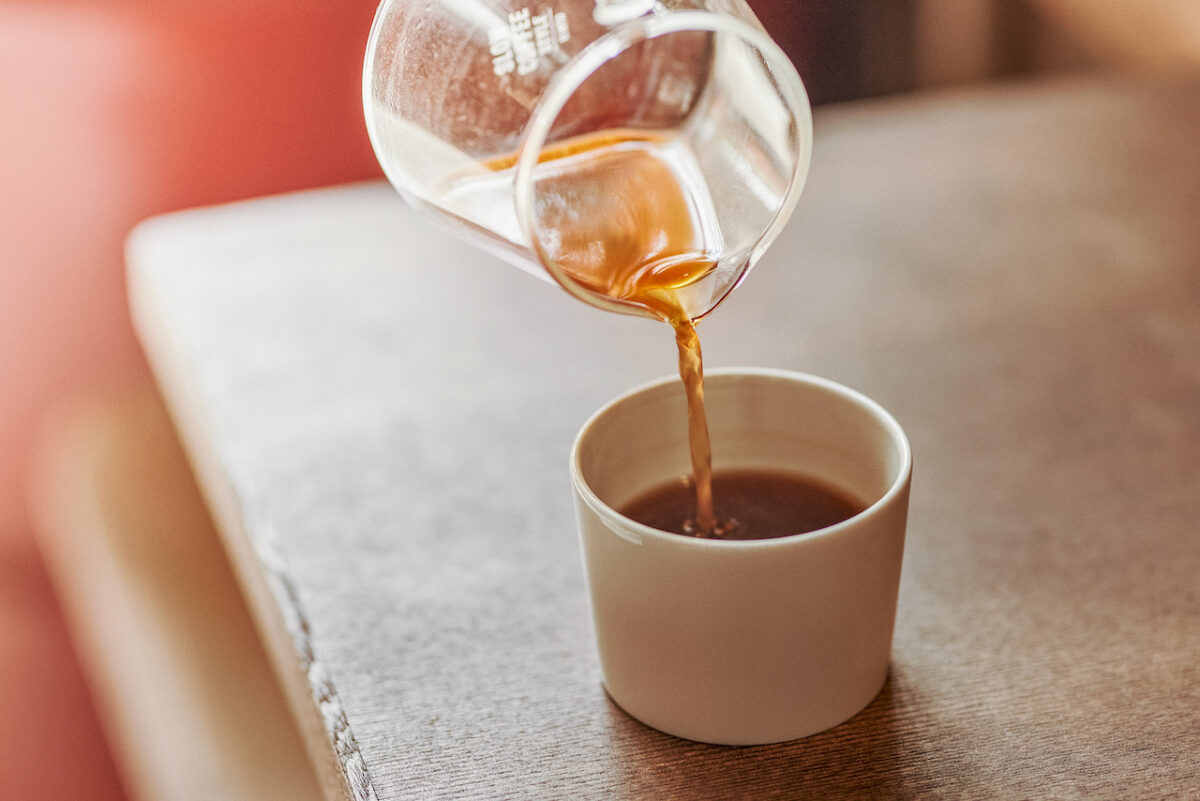
The “unknown world” of specialty coffee
It was a specialty coffee shop in Fukuoka City that drew 19-year-old Ito, who was working part-time at a cafe in Nagasaki City, into the world of coffee. The Kenyan coffee he would drink at that cafe was truly an “encounter of the unknown”.
“The first thing I noticed was that the color of the coffee was more of a translucent red than black, and the taste was completely different from all the other coffee I was familiar with, so I didn’t even feel like it even tasted that good. It left me with a shock as I returned home to Nagasaki.”
Ever since that day, whenever Ito found time he would search for “specialty coffee” on the internet and try to find every single article or piece of information about stores that popped up in the search.
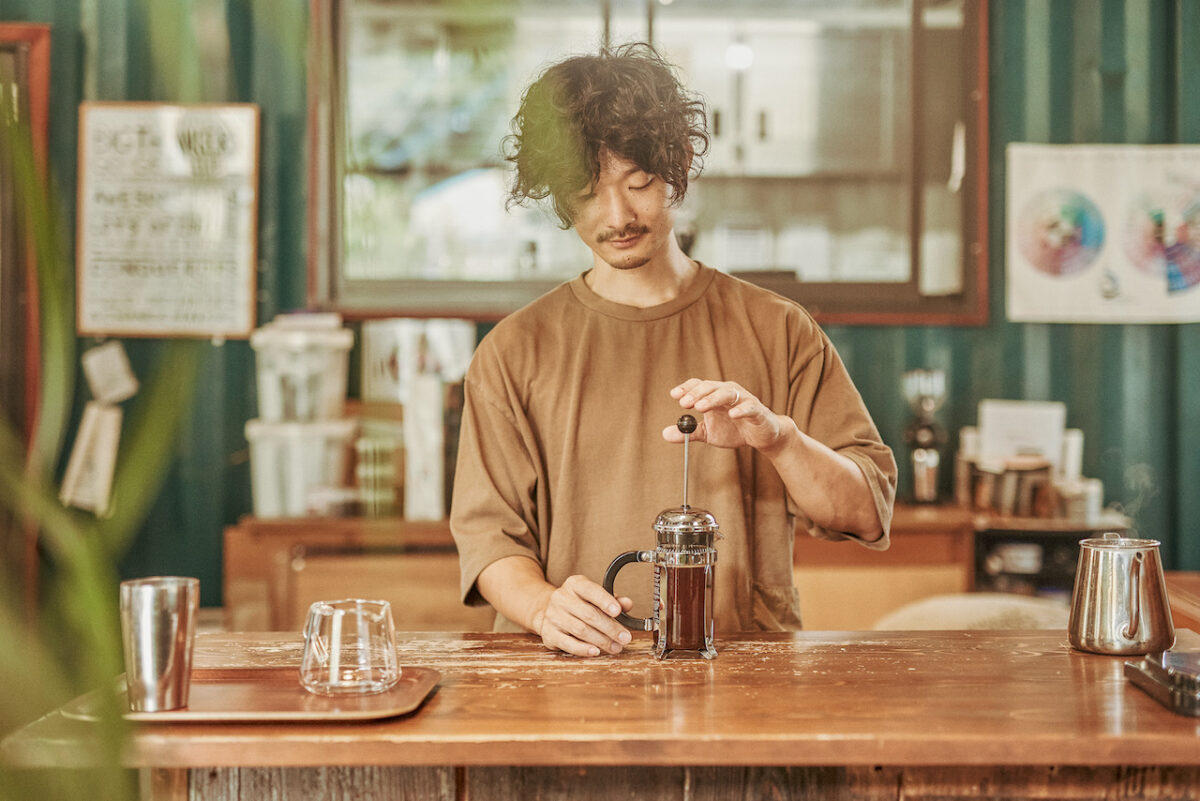
“In the mid-2000s, the awareness of ‘Third Wave Coffee’ wasn’t all that big in Japan, and information about specialty coffee was very limited.It was a time when you could win the Cup of Excellence with a score of 84 points. You couldn’t drink delicious coffee quite as easily as you can now.”
Throughout all of this, Ito, who was always on the lookout for good coffee, ordered roasted coffee beans from one of the few stores in Japan that sold specialty coffee, brewed his own coffee and drank it over and over again. Later, Ito began roasting coffee beans on his own, and in 2009, at the age of 23, he founded KARIOMONS COFFEE ROASTER.
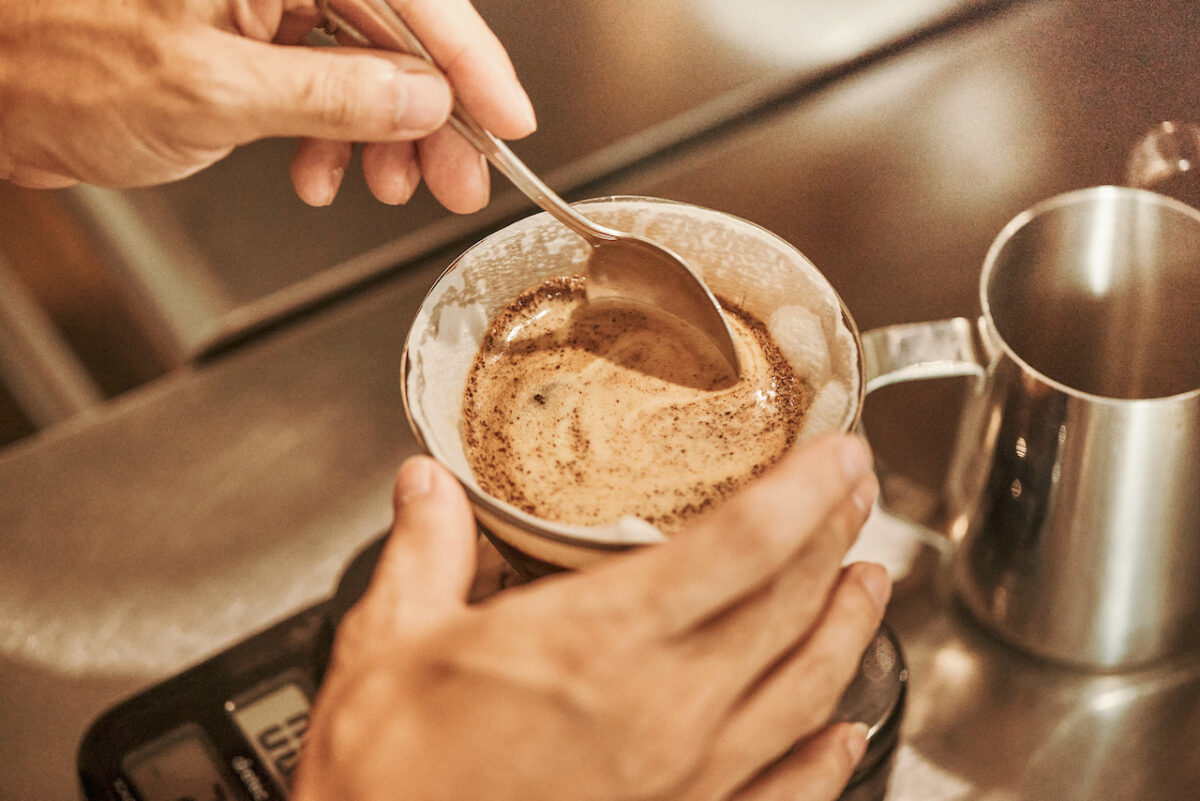
「知人から15万円で”I started KARIOMONS with a used food truck that an acquaintance sold me for ¥150,000 along with a small roasting machine that also cost ¥150,000 because I wanted to try many different kinds of specialty coffee under the pretense that it was for work. At the same time, I felt that the appeal of specialty coffee, which had greatly changed my worldview, could not be conveyed simply by putting it in words, but to share the experience of drinking it.”
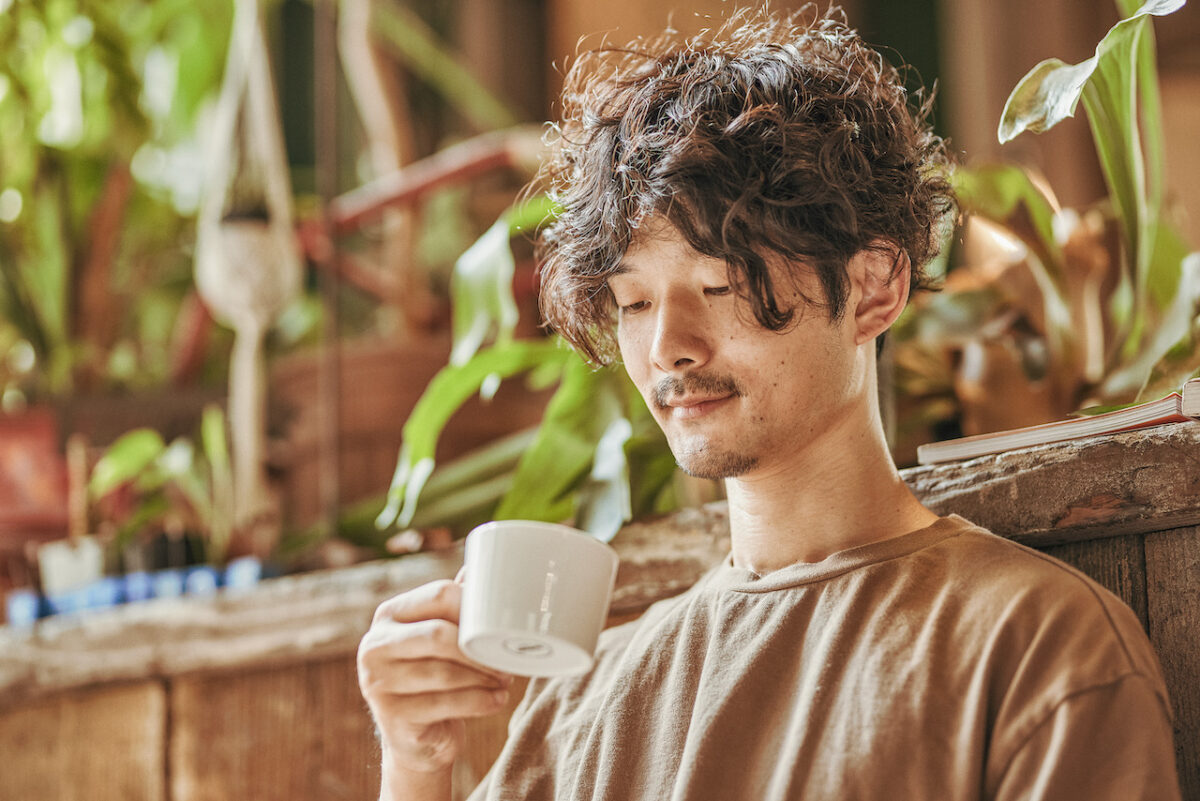
As far as Ito could tell, there were very few places in Nagasaki where you could drink specialty coffee at a physical location back then.
“I’m the kind of person that prefers to build a path where there is nothing. If something doesn’t exist yet, I feel like there’s value in trying to create it. So when a customer chooses to come to us as their gateway to the world of coffee, saying, “Coffee really isn’t my thing, but I was told this coffee is delicious,” that’s when I think is the most important moment for us to show off our skills.”
That is to say, if we fail, they might never pick up a cup of coffee again. That is a huge loss for the entire coffee industry. When I think that I am playing such an important role in showing someone something new and creating a coffee lover, I start to get really intense.

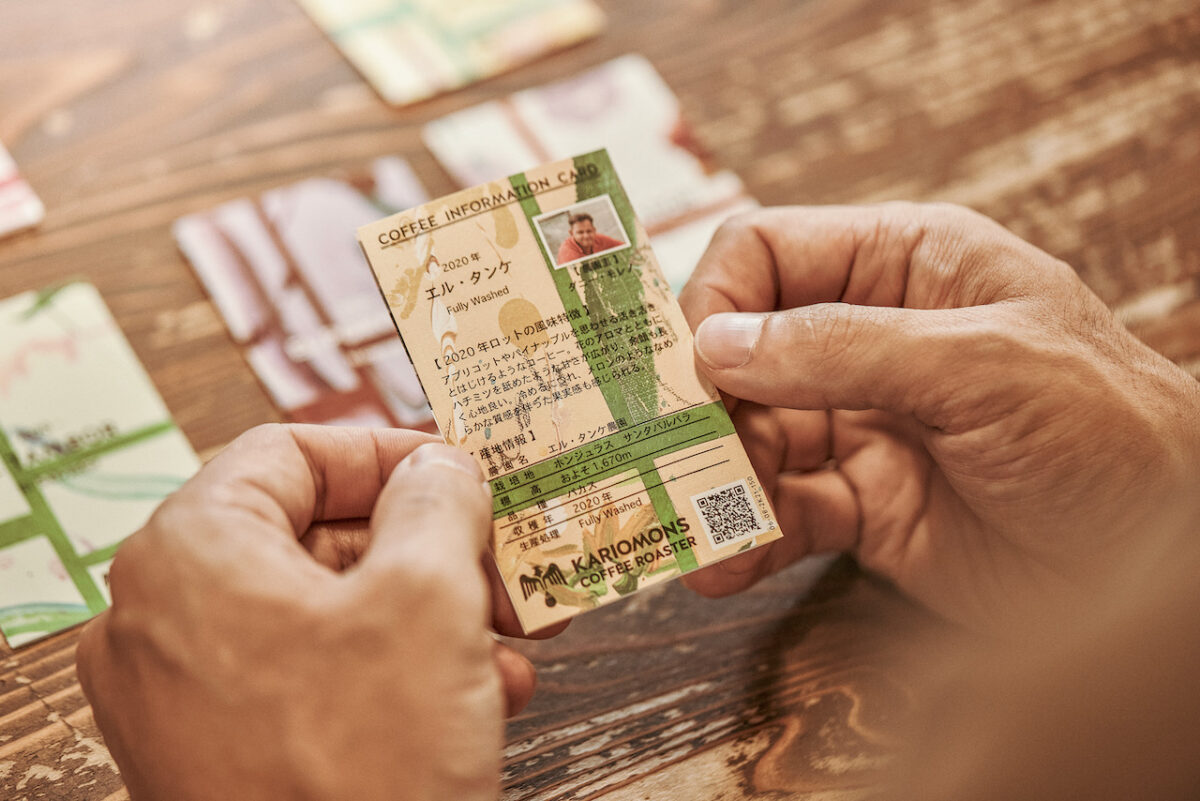
It’s more comforting to see the people
At KARIOMONS COFFEE, where they trade directly with coffee producers, their motto is, “There will be no unhappy people in the supply chain.” This comes from Ito’s experience of going to the locations where coffee is grown back in 2011, two years after the company was established.
“’As the specialty coffee trend is growing around the world, producers are both exhausted and at the mercy of being faced to meet various demands (the distinctiveness of our coffee beans, quality, production management, etc.) from consuming countries.’ As we met with the producers and heard their stories of hardships, I began to wonder if the very specialty coffee we enjoy every day is leading to the happiness of those producing it. As a matter of fact, I have some friends who have actually quit their jobs as coffee farmers.”
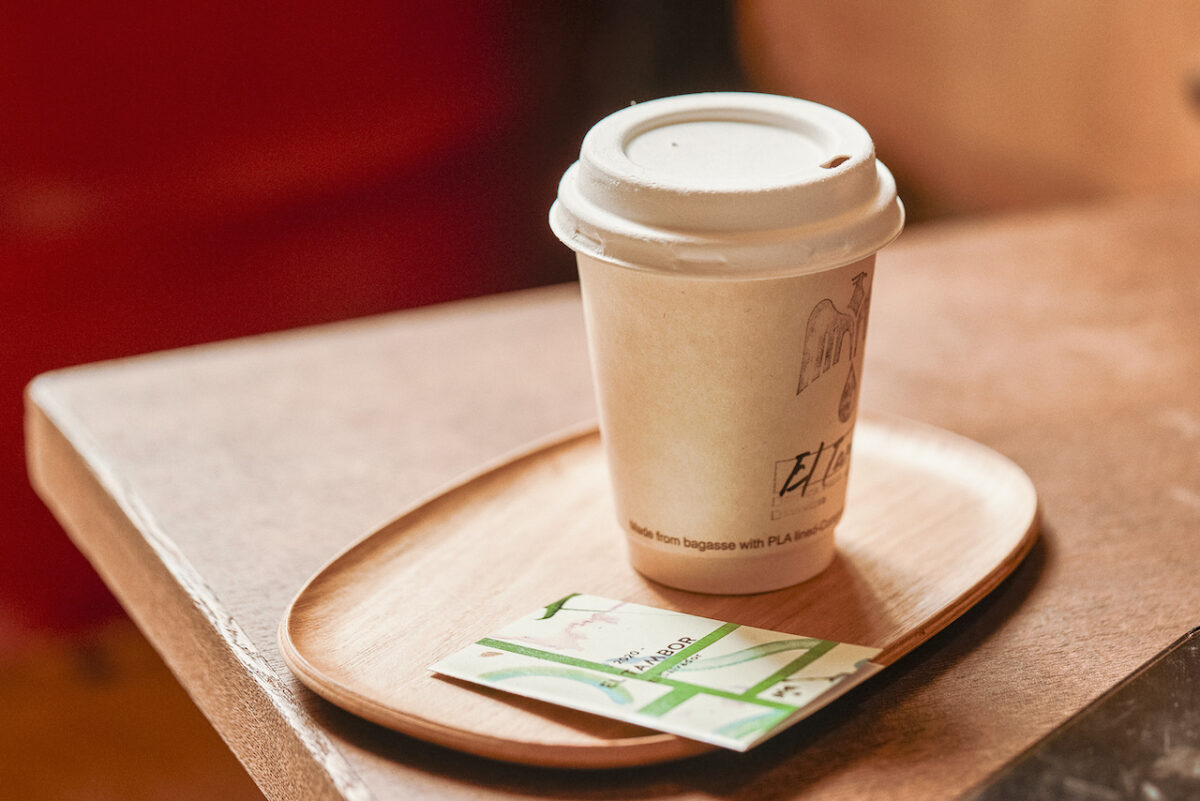
Even if you run a coffee shop, selling coffee is not your only job. Ito’s feelings about this topic are reflected in his slogan, “More than just a cup of coffee”.
“It may just be a 150cc drink made from 10 grams of coffee beans, but many people have had a hand in making it, and that very cup has the power to affect how the person drinking it feels and performs for the rest of the day. Thus, we came up with this slogan to help people realize that our coffee is that kind of beverage.”
“I believe that not only the baristas and roasters at the store, but also the growers that we work with, are part of the team that delivers our coffee to the customers. That’s why I believe that what is happening overseas is also happening to us. If we don’t have that awareness, I don’t think we will be able to truly tell our customers what is inside in their cup of coffee.”
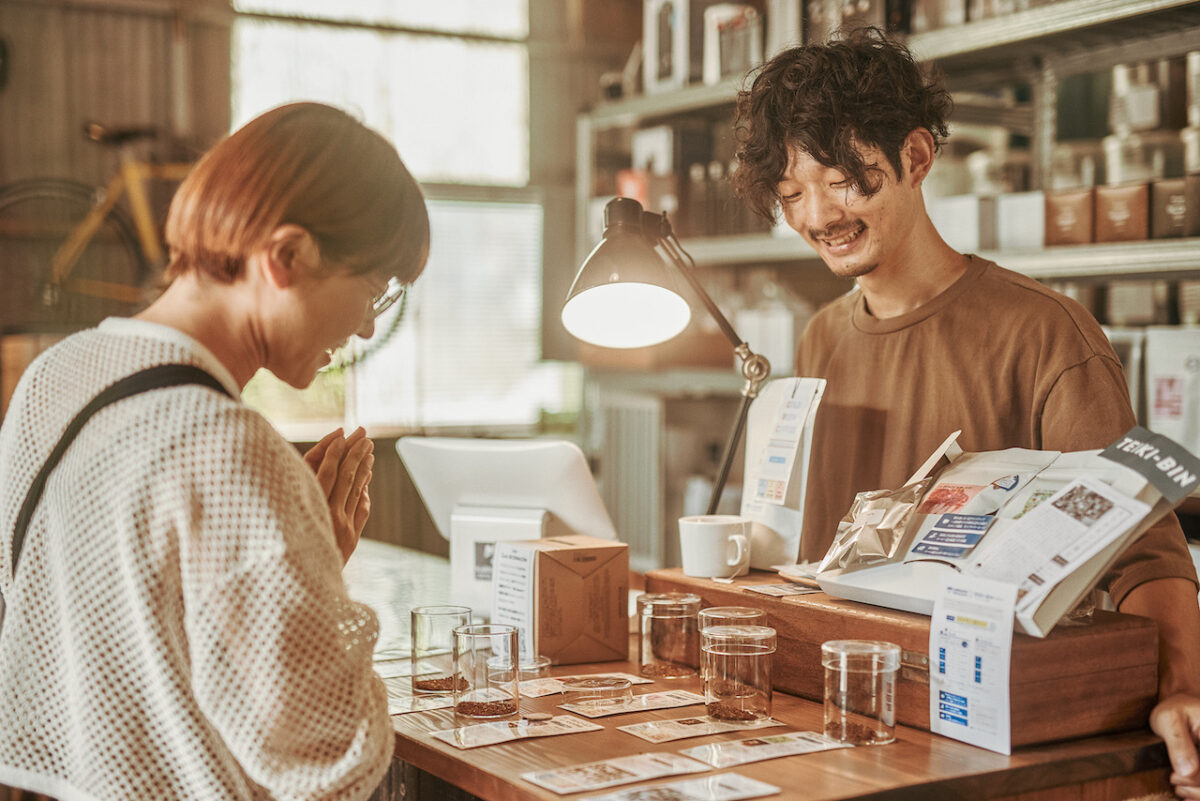
KARIOMONS COFFEE, which began its journey as a food truck, closed it’s Omura location (the second store), after only having been in business for three and a half years, and moved to Nagasaki City.
“The biggest reason for this was that it had become just a place to work. In the morning, we came from another town to open the store and at night when we closed the store, we went back to another town. So they could not see how the people in Omura live their lives, how they spent their year, and what kind of small talk was going around every day.
We were welcomed with open arms by the people of Omura, but we didn’t really feel like we were giving back to them, and we didn’t feel comfortable with the one-sided nature of our relationship.
In that regard, since we moved to Nagasaki City, we have had many more opportunities to meet customers outside of the store, making it easier for me to understand the more human side of the city. For example, I bumped into a customer at a bar who I hadn’t talked to at all in the store, and we began chatting. I’m glad to have the opportunity to interact with someone as a human being, because I tend to be in work mode when I’m behind the counter at the store.”

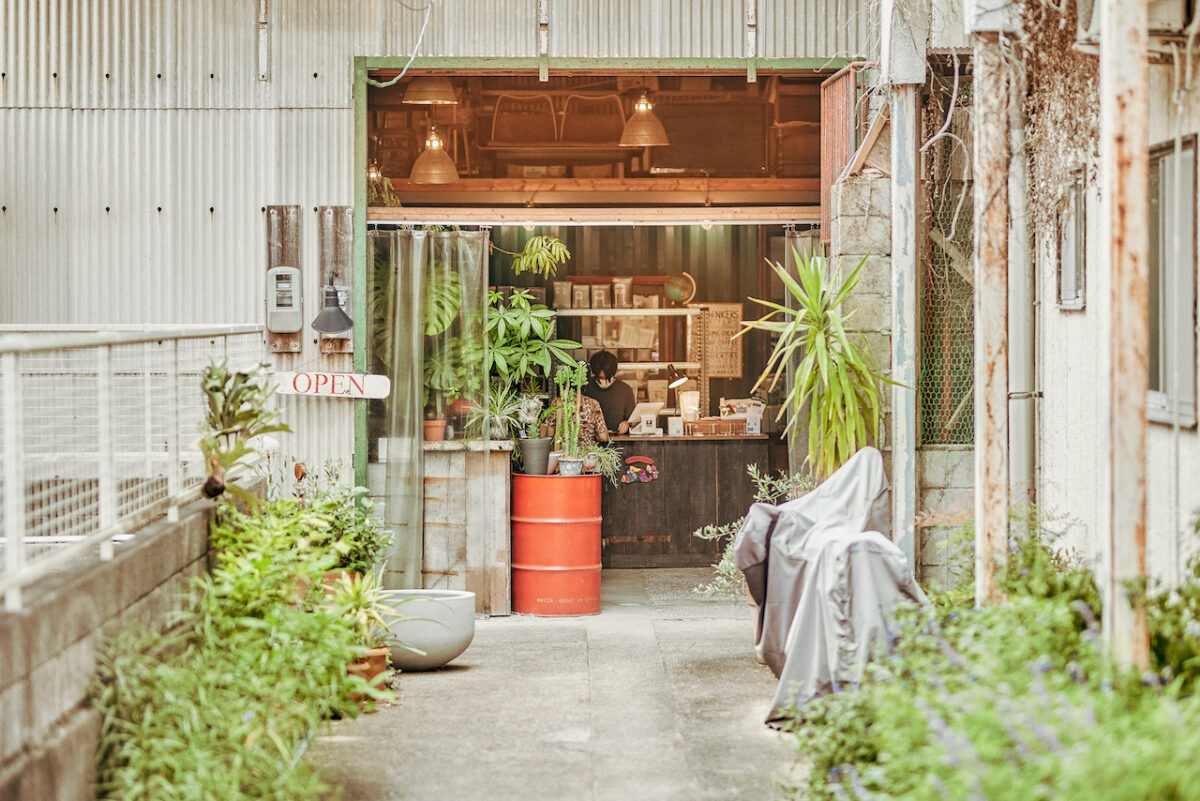
Find value in what is already there
At the Togitsu location, a rejuvenated space that was once used as a factory for stone products, items brought in by customers, such as partitioning screens, chairs, and metal barrels, have all become a part of the store. The Nagasaki store, located on the first floor of a 40-year-old building, is also a renovated space that was once a furniture store and a coffee shop, and has retained many of its original items and structure.
“We tell our customers a story that starts from the moment we buy coffee beans from our producers, so I think people see us also as being in harmony with the old building and things that retain historical value, because they bring with them a story as well.
I don’t know if I prefer to find value in what is already there or if I am naturally good at it, but whether it’s clothing or a car, I prefer used items to new ones, so if I want something, I check to see if there are any used ones first. In this age where we have so many things, it is more rational and less wasteful to use second-hand products. Whether they are tools for work or things I use in my daily life, I feel that I get used to second-hand items more quickly and they become an extension of my own limbs.”
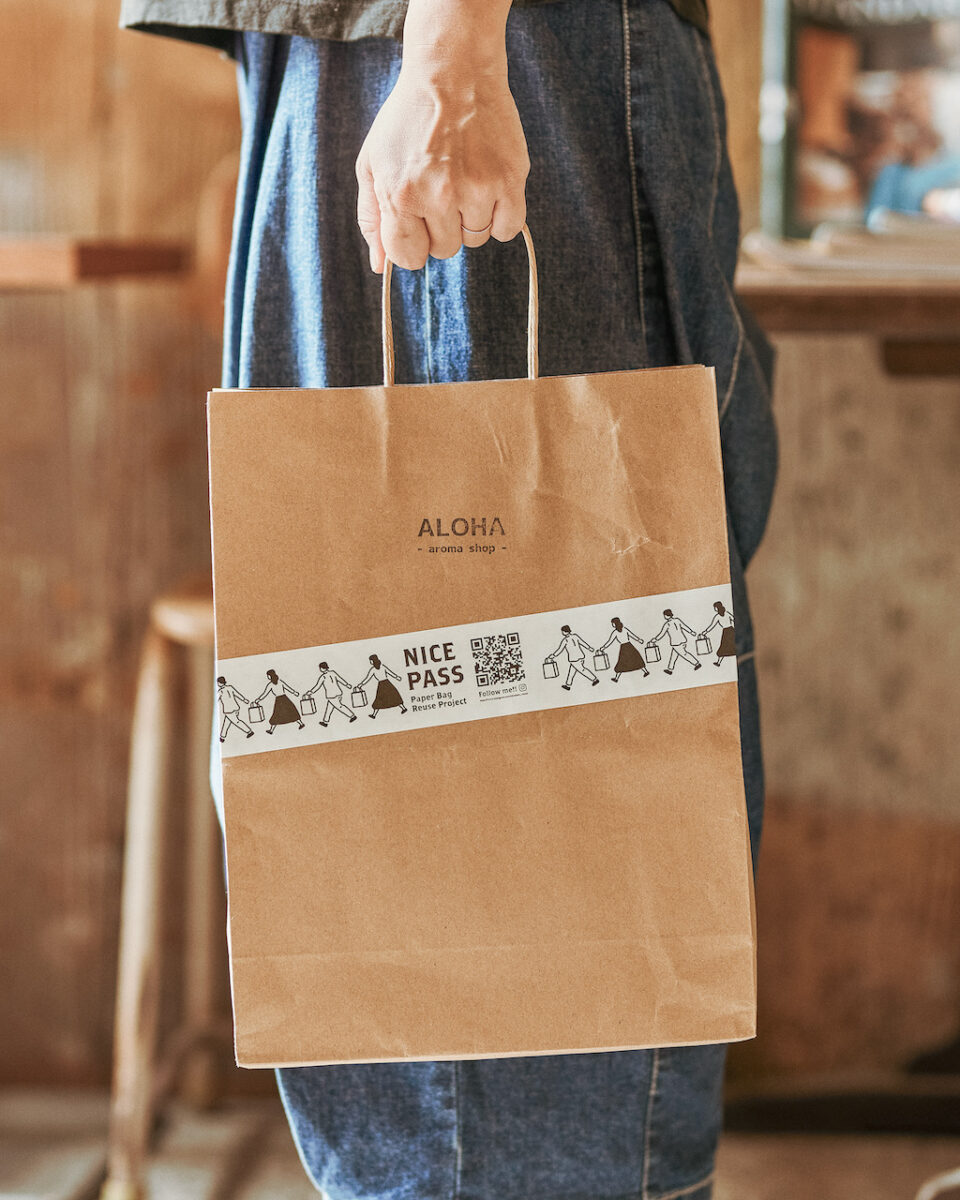
Ito’s way of thinking is also reflected in the “Nice Pass” project that he started in 2020. The project, which is a collaboration with a clothing brand and local university, is an initiative to collect paper bags that tend to accumulate in peoples’ houses at stores and reuse them.
“The store can also save money by not having to purchase new paper bags. This also helps us contribute to the environment by reusing paper bags, which, despite their eco-friendly image, actually emit four times as much CO2 as plastic shopping bags.”
After the start of the project, paper bags from various companies and stores, including castella cake shops, Starbucks, and the former J-Phone store, began to pile up at the stores.
“Customers don’t have to feel bad about throwing these bags away, and they can enjoy the game-like element of potentially winning something at the same time. I’d like to change the socially accepted norm that it is rude for a store to use used paper bags, and even more so, it’s out of the question to use bags from a different company or store, and create a society where such efforts will enhance the store’s brand.”
Over 100 partners including companies, associations and educational institutions from all over Japan are participating in this project by responding after about two months to the call made by Ito and his team.
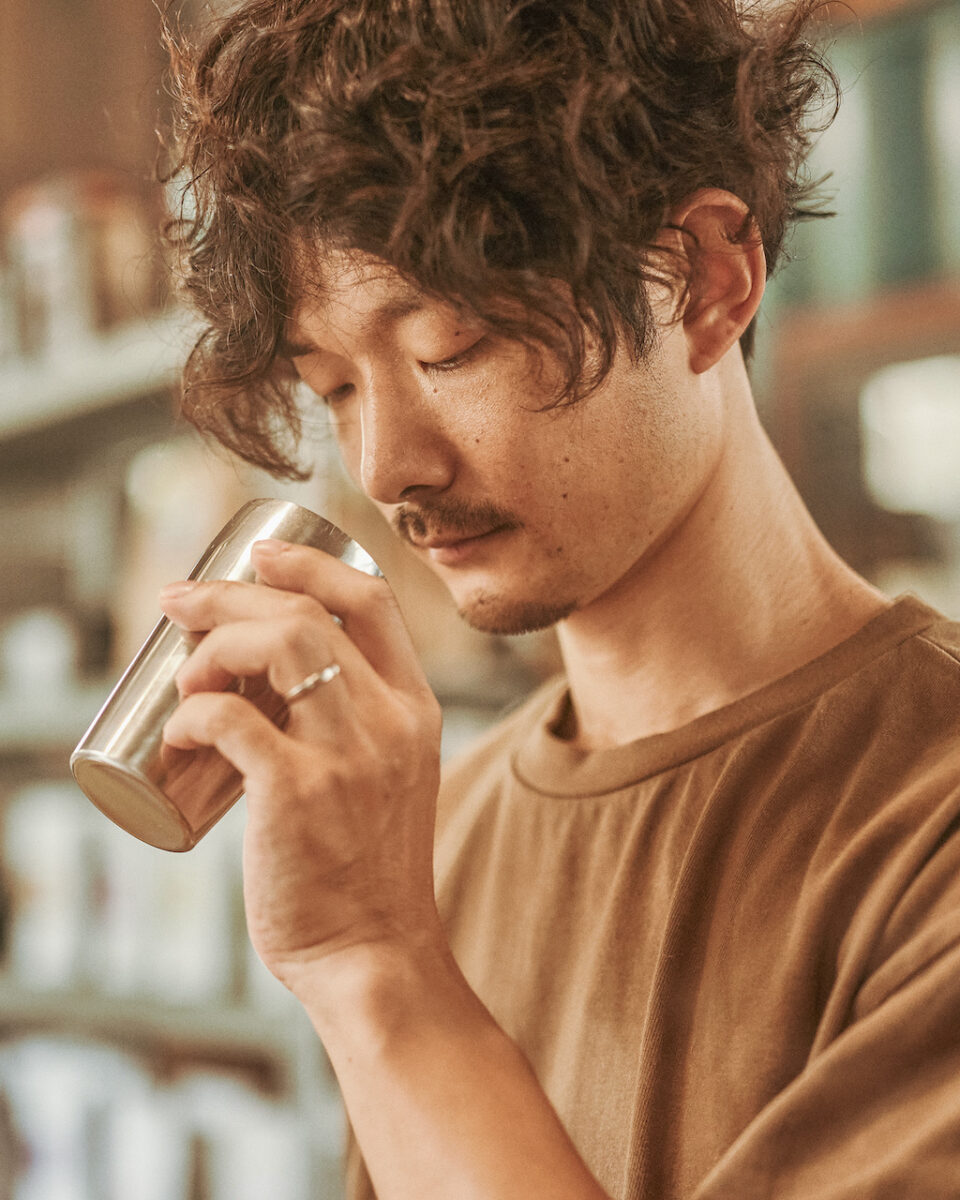
There are things unknown in everyday life
At the beginning of an essay Ito, who said that he wanted to return to his hometown of Unzen and live in the countryside when he grows old, wrote the following for a media platform.
“Traveling is not about going to unknown places, nor does it mean to venture far away. Experiencing the unknown that is hidden in our daily lives can also be a journey of its own.”
“I feel that if we keep searching for new things, we will not only lose our sense of happiness, but also lose our sense of just how small we are as humans. To put it another way, I want to have the feeling that good food to eat, water to drink, and air to breathe are enough. In an age where society is changing rapidly, I think we need to control our desires in order not to lose our sense of comfort.”
However, Ito is certainly not saying this from a perspective of scarcity.
“I believe that there are very few things that are completely new in this world, and most of them are revivals of things from the past. Thus, I believe that unknown does not mean something that is completely new, and we can fully enjoy the world of the unknown by going back to the past in our daily lives. For example, even a knob on a shelf that used to be in every house can be seen as a new discovery for those of us who don’t know what it was like back in the day.”
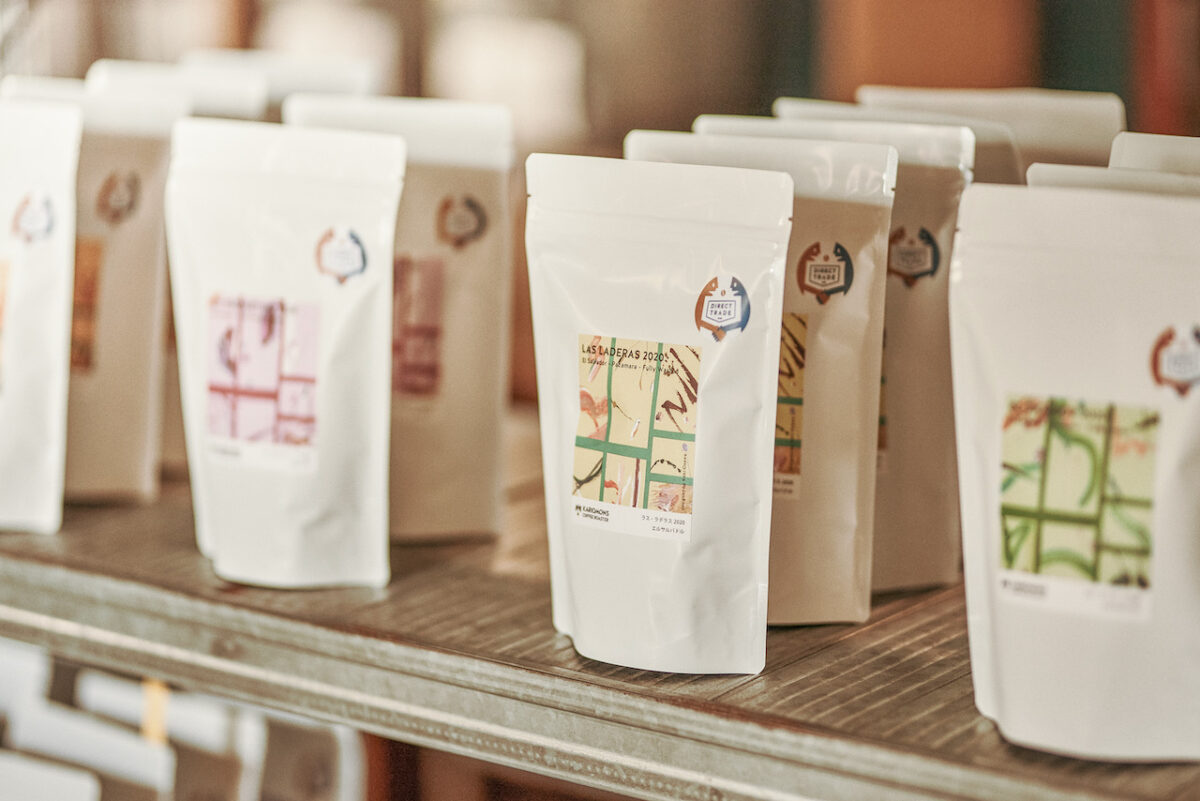
In August 2021, KARIOMONS COFFEE celebrated its 13th anniversary with the support of the Third Wave of Coffee. Specialty coffee has made its way even into the local city of Nagasaki. Now that it is no longer something that is unknown, what does Ito think about it?
“Of course, I’m very happy to be able to drink good coffee, but on the other hand, I feel that specialty coffee is no longer something special and there is a true danger that it will become a commodity, and not in a good way.
In the past, specialty coffees were carefully selected coffees that could only be produced if the weather, cultivation methods, and quality control were all just right. But now, thanks to the advancement of technology and the accumulation of knowledge on how to make it, it has become easier to artificially make delicious coffee.
However, this does not mean that the labor the producers put into making coffee is reduced, so we should not stop at making the coffee delicious, we want to continue our work to properly convey the value of the coffee. We know that there is a high probability that the production of good coffee will decrease significantly in the future, as discussed in the ‘Coffee 2050 problem.’”
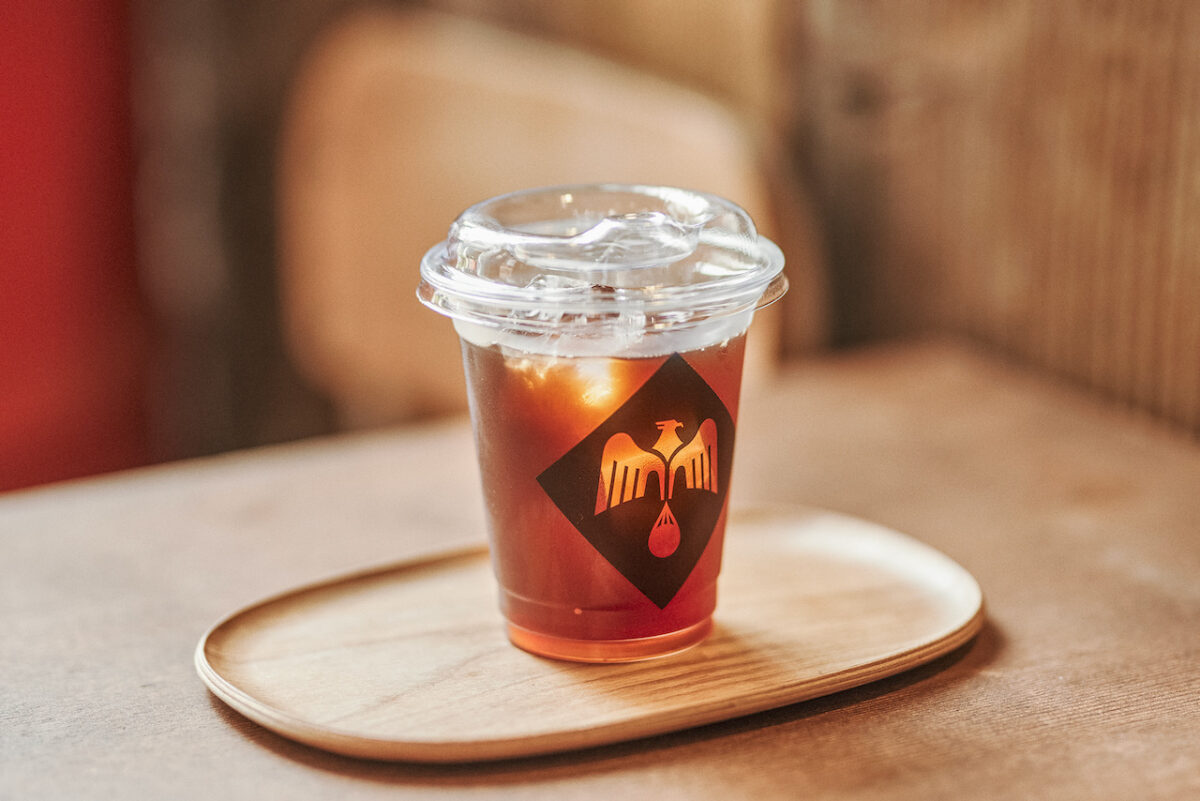
In recent years, the term “face-to-face relationships” has become commonplace in our society, and this is most likely because such relationships used to be the norm, but have been lost with economic development. What KARIOMONS COFFEE has been conveying through each cup of coffee for over ten years might just be the message that, “You don’t have to go far to find happiness.”
Written originally in Japanese by Tatsuya Nakamichi
Photo by Kenichi Aikawa
MY FAVORITE COFFEE人生を豊かにする「私の一杯」
It is a cup of coffee brewed by another person. Whether it is a cup of coffee at a store, or a cup of coffee that our staff puts care into brewing for me, the charm is that I can enjoy it without evaluating it.
